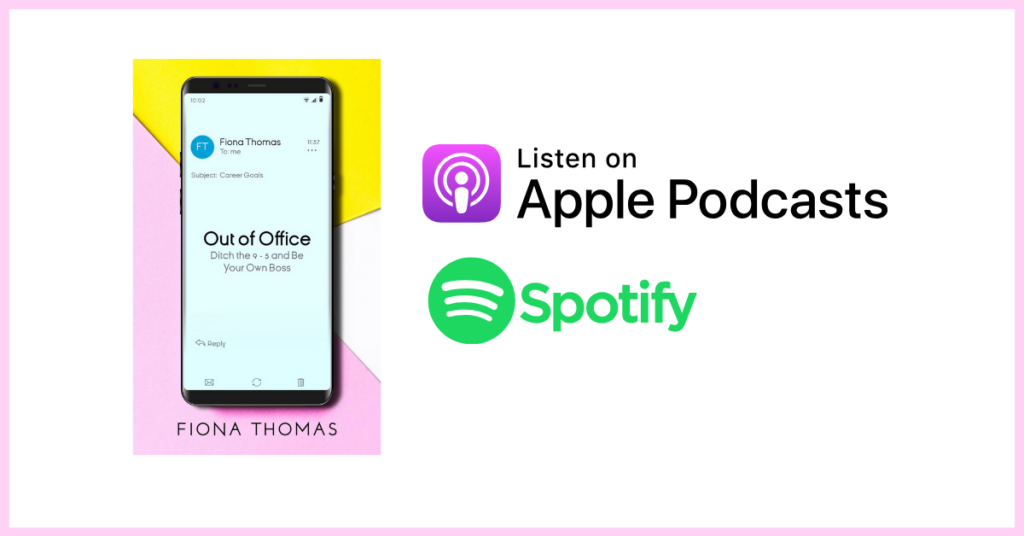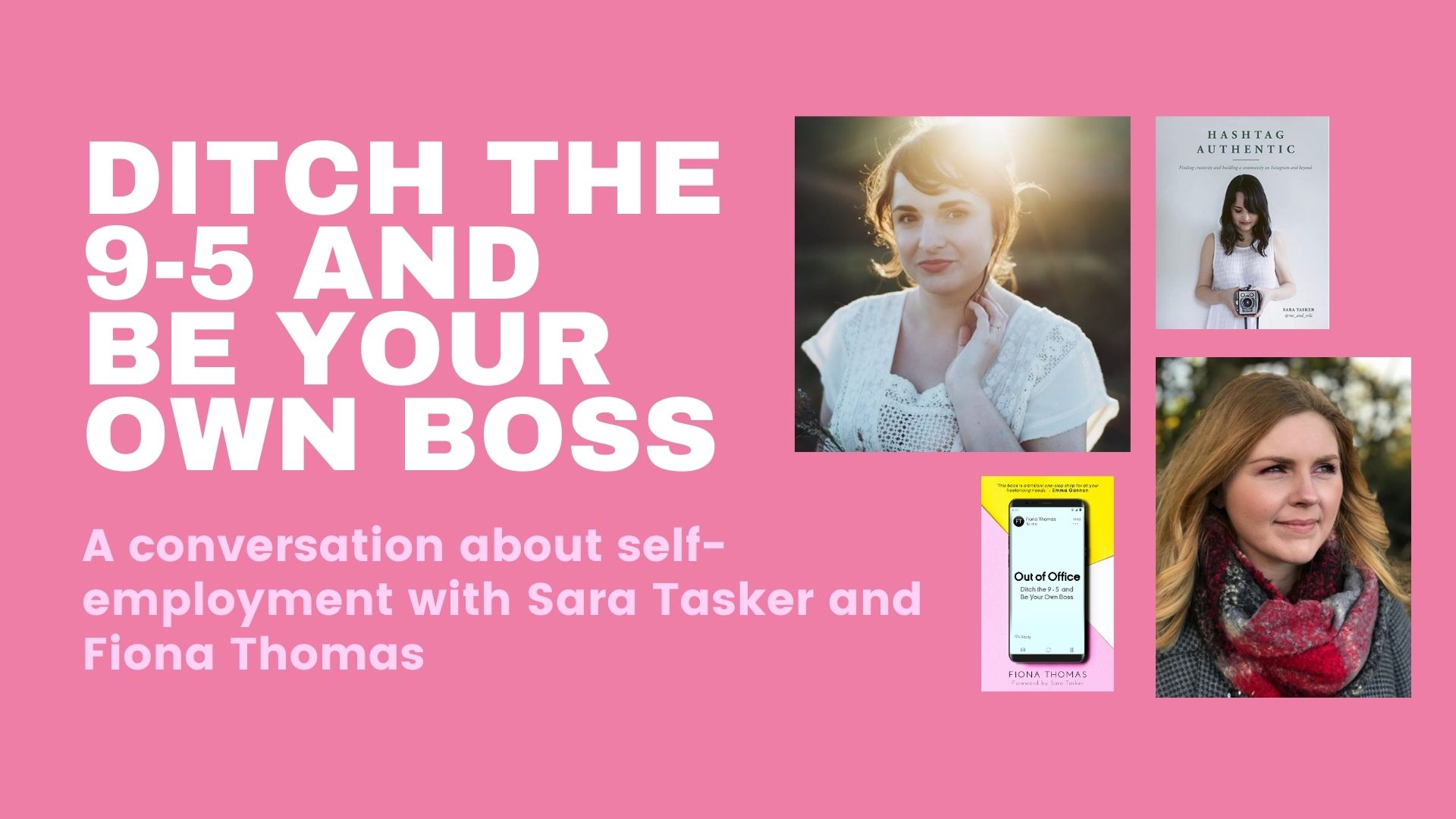
Being the face of my business made it impossible to grieve
Like most toxic relationships, I’ve loved and hated my work with equal intensity over the course of my career. At 26, the stress of working in a hospitality management role put me on medication that I will probably take for the rest of my life. At 30, becoming a self-employed freelance writer and getting a book deal was a cause for celebration. Then, when I came out as a lesbian at 35, my attachment to my career began to shape shift yet again. But this time felt different.
In first few months after coming out as a lesbian, my work as a freelance writer and writing group facilitator was something to lean on when everything stable in my life had disappeared. My husband, our home, and the certainty about our future together had been destroyed. I moved back into my parents’ house, grateful for the rent-free living, yet stifled by a routine that was not my own, and desperate for a sense of direction when both my identity and path forward seemed like anybody’s guess.
Impossibly tall tenement rooms held the void of my future in their corners. Painted-shut windows wore the mould of outdated identities
Those early months were saturated in the kind of unpredictable grief that spilled out at the seams. Long voice notes to friends, pages and pages of journaling late at night. But work was a tonic, a reason to get out of bed, and a way to create financial building blocks for the future. I was helping people – hosting writing groups multiple times a week, holding space for connection and creative confidence was something that seemed like it should be fulfilling. So I kept doing it.
But still, something in me wasn’t OK, and I knew I needed more space to process and I needed it sharpish. I scoured ads on spareroom.com and moved into a room of my own a few weeks later. The rent was the cheapest I could find, and although there was some fear around being solely responsible for my own bills, I’d been earning consistent wages through my business for six years or so, and figured it would probably all work out fine.
Opening up to grief
The rumblings of a dissatisfaction with my work were amplified in the space. Impossibly tall tenement rooms held the void of my future in their corners. Painted-shut windows wore the mould of outdated identities. I liked to lie in bed because I could still see the trees from the window as I wept and wondered what would become of me. I moved in during the summer, and watched the summer leaves, jealous of their joy, from underneath secondhand sheets in another not-quite-mine kind of a room.
Tracing familiar steps from between the bedroom and the fridge, I worked with my MacBook propped up on my lap in bed, finding comfort in the hidden-away nature of my existence. Even when I was struggling, I worked hard on my business, chasing pitches, writing articles, and hyping myself up to mentor clients. Maybe I didn’t work in the ways that I used to, but I did so in the ways that grief allowed.

As autumn approached, I found a local poetry course to take part in. The creativity felt like a hopeful avenue for healing, perhaps even a boost of motivation to work a little differently? But as the leaves turned from green, to yellow, to fiery red, the catharsis of free verse opened up long-forgotten wounds, drew circles around my biggest fears, and zoomed in on my shadows in a way that was difficult to withstand. Vulnerability in writing has always been my strength. Previously, it was the safest place for me to tell the truth, because it gave me a chance to let my thoughts bloom fully and petter out naturally. But now, the truth was painful and hard to witness.
Fear of being uninspiring
As my tenderness towards the truth increased, my income plumetted. The optimistic, inspiring social media posts that had once led my online courses to sell-out in just a few days, weren’t coming naturally. In fact, they weren’t coming at all. I resented the implicit need to alchemise my life into marketing emails, to continually feed the algorithm with scroll-stopping hooks and calls to action. Yet the more I resisted, the more I noticed my bank balance dwindling.
The task of portraying myself online to make ends meet became tedious, bordering on self-betrayal. There were no inspiring tales to tell. It seemed that all my writing was dark, complicated, and worryingly contradictory to the ‘me’ that appeared in my books, the ‘me’ that clients had been used to working with. Sharing my emotional landscape online had once felt empowering, but now, it felt like career suicide. Even if people did genuinely want to know the inner workings of my mind, I was in no place to articulate them without falling apart.
When you take off the mask that made people like you, there’s a chance you’ll be left to fend for yourself.
So, as another low balance alert pinged on my phone, I did what I’ve always done. I assumed that I was the problem. I moved further and further away from the truth about the my unnamable grief and looked for ways to maintain the facade of palatability. Instead of the confessional emails I was known for, I bought marketing templates. On good days, I recycled old posts. On bad days, I asked ChatGPT to write them. None of it worked.
Unsurprisingly, this attempt to pass as emotionally stable didn’t work. Christmas brought with it one last-ditch attempt at an online writing group that I could only facilitate in the knowledge that it would be done entirely via email, without having to appear on camera. Several people took part and said positive things, but I was mentally absent from the process. In the New Year, I moved back in with my parents, yet again, to regroup.
Letting go of the perception of success
My business was not a victim in all of this. My business could have recovered; but not with me at the helm, that was clear. So I decided to start applying for jobs, which resulted in quite a few potential employers looking at my with confusion. Like one guy who literally scratched his head when he realised I was a published author applying for a social media role at a coffee company; another asked me how much I earned from my books; another curious as to why I was applying for such a ‘junior’ position. How could I tell them that the self-assured person who achieved all the successes on my CV was dead? How to explain that my career hinged on writing about myself, but that my reflection had become so distorted that there was no other option than to try writing about coffee as a way to escape my own grief?
Working in traditional employment had always felt like self-abandonment to me, even if I couldn’t see it at the time. Being self-employed, having autonomy over my projects, my schedule, my rates, that was self-reclamation. But now, opening up another rejection email was a reminder when you take off the mask that made people like you, there’s a chance you’ll be left to fend for yourself.
After almost six months of doing nothing other than apply for jobs and attend interviews, I was finally offered a year-long contract as Features Editor. Answering that phone call was what I imagine it must be like to win the lottery, except the cheque is just a year-long opportunity to remove the mask of performed happiness without getting into mountains to debt in the process. A year off from selling a product that is wrapped up in my identity, a year off from selling myself as part of my work, a year to redefine the boundaries of where my business ends and I begin.
This isn’t to say business owners can’t create space to work and grieve simultaneously. This isn’t to say that work is essential to recovery. It’s just that grief is an unpredictable shadow that follows us all in some shape or form, and how we learn to cope with that is unique to each of us. Having control over my work life used to soothe me, but after about 6 weeks of being in regular employment again, my nervous system responded and began to settle for the first time in years.

I’m an over-sharer and will always write about myself, but this portion of my life – the liminal aftermath of shattering who I am and not knowing what comes next – has been far too tender to unravel in realtime. And working within the reliable structure of a 9-5 job with a regular pay check every month, alongside the symbolic letting go of the obligation to write about my life on a public scale formed the beginning of a kind of healing for me. Will I share the lessons learned from this period? I’m not sure, but I know that writing this piece has been therapeutic, so it seems that baby steps are forming, although I’m taking it at my own pace.
A few years ago, I was entirely convinced that being a company of one was a cornerstone of my identity, that being self-employed was an essential aspect of what it means to be ‘me’. But life can surprise us, and perhaps that version of ‘me’ is the thing I’m grieving for today. May she rest in peace.



























